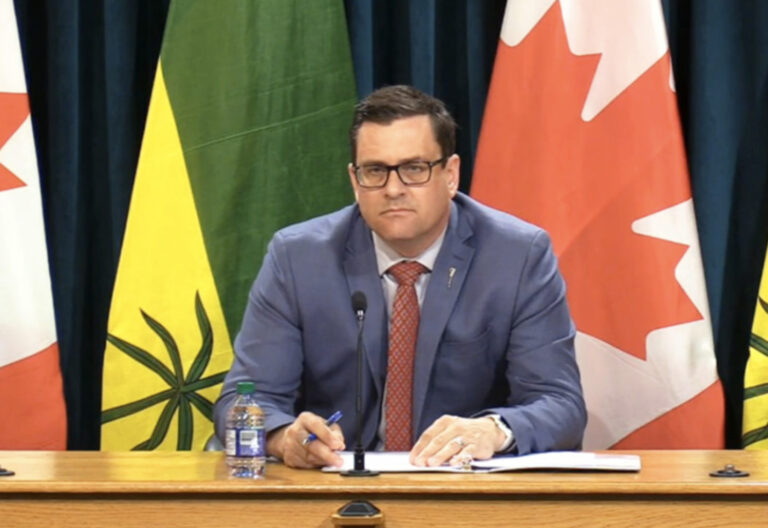
The provincial government has changed self-isolation rules for residents who test positive for COVID-19 and those who are close contacts.
Starting on Friday, Jan. 28, patients who test positive, regardless of vaccination status, will only have to self-isolate for five days instead of the previous 10. Residents who are close contacts will also no longer have to isolate regardless of their vaccination status.
Health Minister Paul Merriman said the province-wide adoption of COVID-19 home rapid tests meant the province could transition to less stringent public health orders.
“As we learn to live with COVID, we need to be prepared to transition our public health measures and responses,” Merriman told reporters during a press conference Thursday morning. “That’s why, on the recommendation of our chief medical health officer and his team, we are announcing several changes to the self-isolation and close contact requirements.”
Residents who are currently self-isolating for 10 days may amend their self-isolation period at noon on Jan. 28 if they asymptomatic. Patients displaying symptoms must continue to self-isolate until they are symptom free.
Caregivers and parents are also no longer required to notify schools about positive test results, although those who test positive must still self-isolate.
Merriman said the omicron variant continues to spread across Saskatchewan, however low hospitalization numbers mean the province can afford to relax public health orders.
“It’s very important that we look at all of the numbers,” Merriman said. “What we’re seeing is even though there are large numbers of people contracting COVID-19, that is not transitioning into larger numbers than we saw in the delta wave with our hospitals.
“We have to remember what we were backing up when originally COVID was presented to us. It was to protect our healthcare system and protect against severe outcomes and we’re still continuing to do that.”
Mandatory vaccination or testing requirements, and mandatory masking requirements will remain in place until the end of February. Merriman emphasized that COVID was still a challenge for the province, but one they could manage.
“Reducing it from 10 down to five does not mean that COVID has gone away,” he said. “It has not gone away. I want to be very clear about that, but how we are dealing with it is continuously evolving.”
Chief Medical Health Officer Dr. Saqib Shahab told reporters the province needs to respond to COVID-19 like other communicable viruses. He said the province managed the outbreak differently when COVID-19 was new, but healthcare experts now have a better grasp of how to treat and prevent it.
“This is all part of a gradual transition,” Shahab said. “We have been gradually modifying the public health order and recommendations as we peak and now hopefully start coming down.”
Shahab said the omicron variant is mild for residents who are fully vaccinated. He said the new measures align with how the province responds to other communicable viruses like influenza.
Merriman’s announcement received swift condemnation from the union representing Saskatchewan’s education support workers.
The Canadian Union of Public Employees (CUPE) told reporters they are extremely concerned with the government’s decision to end contact tracing in schools, which they say will increase COVID risks for students and staff.
“(Premier Scott) Moe has stripped away the paltry protections that were in place in our schools,” CUPE Saskatchewan education workers steering committee chair Rob Westfield said in a media release. “Many of our members work in close physical proximity with students—providing hands on support and guidance for students with complex needs. The mental toll of not knowing if you have been exposed to COVID is immeasurable.
Westfield said the decision was highly irresponsible, and removed any incentive for unvaccinated residents to get vaccinated.
“This will create more stress and anxiety for students and parents if they don’t know if other students are infected with COVID,” he said. “We can’t turn a corner on the fifth wave of the pandemic, when the government is ending positive test reporting in schools and contact tracing. It puts politics over public health.”
